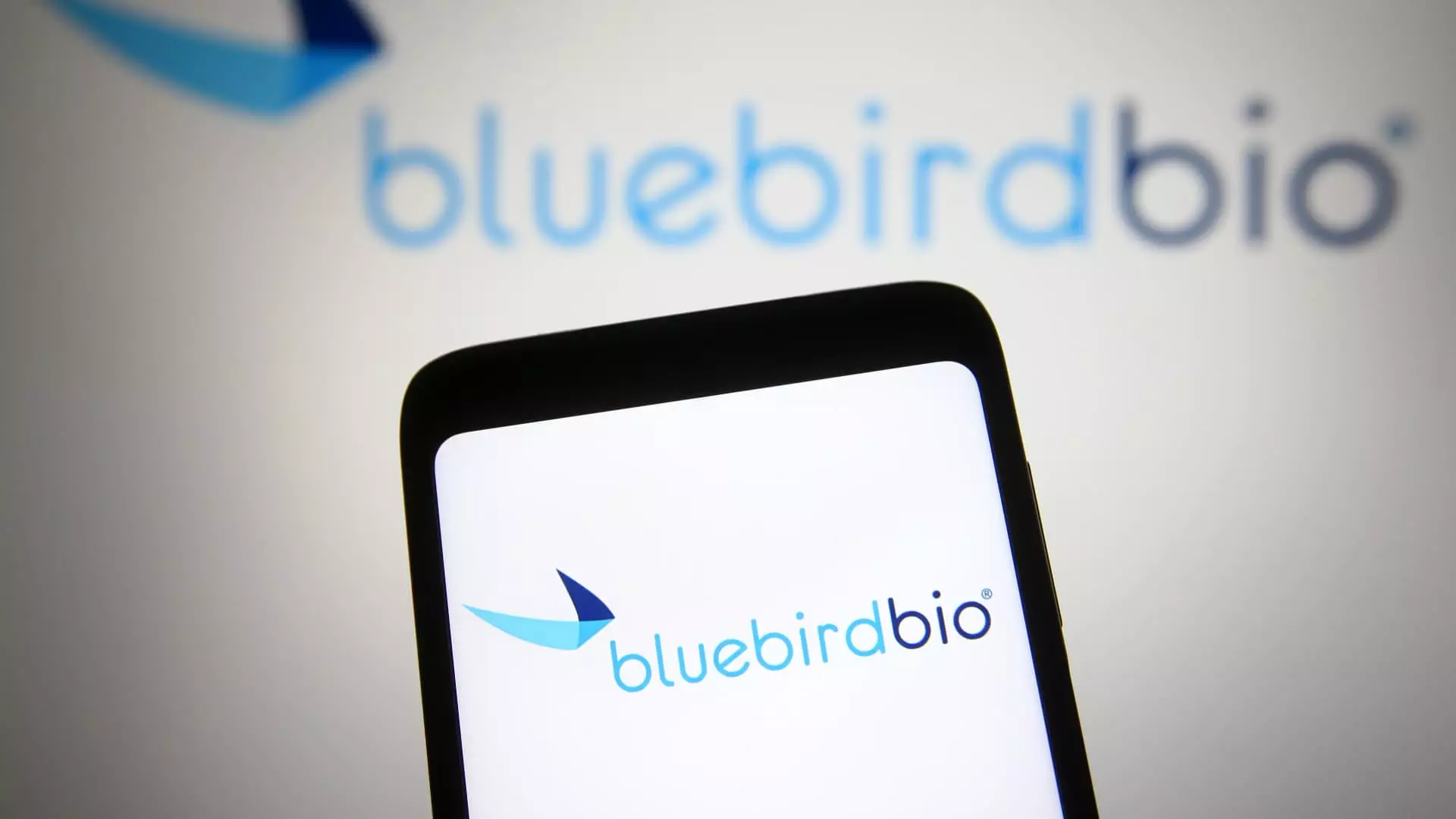Bluebird Bio, once a shining star in the biotechnology sector, has recently announced its acquisition by private equity firms Carlyle and SK Capital for a mere $30 million. This development underscores a dramatic decline from a company that, just a few years ago, was celebrated as a pioneer in the gene therapy landscape. The fall from grace has been swift and sobering, reflective of both the challenges inherent in developing groundbreaking therapies and the broader uncertainties facing the biotechnology industry.
For over three decades, Bluebird Bio has been at the forefront of innovation, aiming to provide one-time cures for genetic disorders. At the height of its success, the company commanded a market capitalization of approximately $9 billion, buoyed by investor enthusiasm and promising early results from its gene therapies. However, the company encountered a series of setbacks that caused its market value to plummet to less than $41 million, leading to concerns over its financial viability.
The pivotal moment in Bluebird’s downfall occurred in 2018 when reports emerged about a patient developing cancer after receiving its gene therapy for sickle cell disease. Although Bluebird asserted that the treatment was not responsible for the cancer, the incident sparked widespread scrutiny regarding the safety of its DNA-altering technologies. Such public skepticism can be fatal in a field where trust is paramount, signaling to both investors and patients that the risks may outweigh the potential rewards.
In addition to scientific hurdles, Bluebird faced significant pushback from European payers regarding the pricing of its gene therapy Zynteglo, which was set at an astonishing $1.8 million per patient. The exorbitant price point led to its withdrawal from Europe merely two years post-approval, a troubling indication of the difficulties biotech firms face when attempting to find a balance between innovation and affordability. This unsettling turn of events has raised questions about the economic sustainability of pioneering gene therapies, particularly in a world where cost-effective healthcare is increasingly demanded by both consumers and regulatory bodies.
Despite the setbacks, Bluebird turned its focus back to the United States market, with multiple therapies—including Zynteglo, Lyfgenia for sickle cell disease, and Skysona for cerebral adrenoleukodystrophy—gaining approval in recent years. However, securing regulatory nods has proven futile in alleviating financial strains that continued to mount due to exorbitant operational costs, which approached hundreds of millions annually.
The sale of Bluebird represents not just a significant financial loss for the company, but also a disheartening testament to the hurdles that the biotech industry must overcome. The $30 million acquisition price is strikingly minuscule when juxtaposed with the estimated $80 million earned by the company’s former CEO, Nick Leschly, during his tenure through stock sales. This discrepancy highlights a jarring reality: the potential life-changing impacts of gene therapies may not be enough to secure a company’s financial future.
An even more sobering aspect of Bluebird’s tale is the emotional resonance of its story. There are patients whose lives have been transformed by treatments like Zynteglo, showcasing the undeniable power of these innovative therapies. Yet, the market’s inability to support Bluebird leaves lingering doubts about whether biotech firms can successfully navigate the complexities of developing and marketing one-time treatments for rare diseases.
As the biotechnology landscape continues to evolve, Bluebird Bio’s decline serves as a cautionary tale for other firms in the industry. The challenges of balancing innovation with affordability, regulatory scrutiny, and market acceptance remain pressing concerns. Furthermore, Bluebird’s story prompts broader questions about the future sustainability of gene therapies and the financial models underpinning them.
As companies strive to refine their approaches and enhance patient access to life-altering therapies, the biotech industry must address these existential threats. The hope is that lessons learned from Bluebird’s misfortunes will pave the way for a more resilient and responsible biotechnology ecosystem in the years to come. Only time will tell whether the promise of transformative gene therapies can ultimately be realized, both for patients and for the companies that seek to deliver them.



Leave a Reply